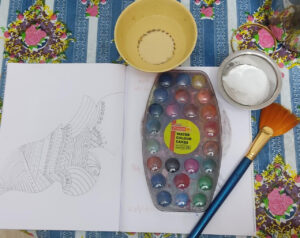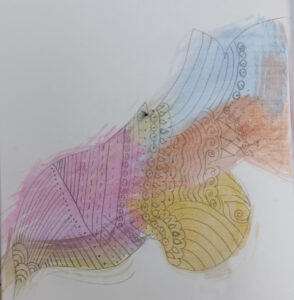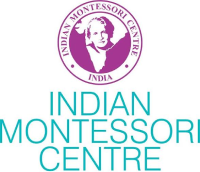This Harvest season, let us be grateful to mother nature and the community of farmers and their families who nourish us every day. There is so much we can learn from nature! To be patient, anticipate change, prepare, nurture and provide! To observe a seed, sprouting steadily through the soil, or a butterfly slowly emerging from its cocoon is to be part of something miraculous. We must learn to be patient and not interfere with nature’s timetable. This month’s “Reflections” section reflects the same! Maybe, while setting up a new House of Children, we need to be patient, provide when necessary and endure as well- look at the journey a House of Children in Kerala has gone through in the Journey of HoC section!
Reflections!
G-one taught me an A-one Lesson
Ms. Latha Rao
Jeevan was 3 years and the children fondly called him ‘G-one’ (the movie Ra-one had been released then) and Jeevan did not mind this. His enthusiasm for work was boundless.
That particular day, Jeevan had picked up pouring with a funnel and he worked with it repeatedly and this was not unusual. Soon, there were anxious glances from the other young ones who also wanted to lay their hands on the material. One child asked Jeevan to stop the activity and return the material to the shelf. When Jeevan did not respond, he complained, “Aunty, G-one has been doing pouring for a long time. Will you ask him to give it to me?”
Feeling that it was a fair request, I walked up to Jeevan to ask him to comply with the wishes of his peer. Just as I uttered his name, Jeevan placed his index on his lips in a gesture to silence me and then pointed at the funnel. The silence that followed still envelopes me. As we watched the water spiraling down, Jeevan transferred the wonder of the moment. When it emptied, he poured water a tad fast to fill the funnel quickly to the brim. He had realized that if he poured slowly, water would trickle down and not swirl!
I don’t remember if he stopped then and handed over the material or what followed next. The wonder of the phenomena that the child pointed out will remain as an everlasting memory, reminding me and hopefully all of us that life is filled with wonders to be discovered and treasured.
Another important lesson that Jeevan brought to our attention is that children need time and space to savour every moment, so that they can discover life by themselves…whether it is water spiraling down a funnel or buttoning their jackets on their own. Undue hurry can rob children of the opportunity for self-discovery and self-realization.
‘G-one’ taught me a lesson that was ‘A-one’. Match your steps to the child’s pace.
Montessori At Home!
By Aishwarya Dwarakanath
Activity 1: Learning about Flags

Here are 5 unique activities you can do with a 1-100 chart:
1. Skip counting: Children can choose to skip count with different numbers and colour in the numbers as well. Encourage them to skip count from any number. For example skip counting in 5’s but from 26. (26, 31, 36, 41…) This helps them look at patterns and get better at mental math.
2. Play a version of Snakes and Ladders. All you need is a dice. For every multiple of 7, you go back 3 places, and for every multiple of 5, you go ahead 3 places. The person who reaches 100 first wins.
3. Use the chart to introduce addition and subtraction. Show the child the direction in which to count forward on the chart/. Then suggest a problem- 25 + 7. Move your finger 7 spaces after 25 to get to the answer. For subtraction, move your finger backwards. The child can also try as many problems as they would like.
4. Write down problems of different kinds on paper slips in a bowl. The child must choose a problem, solve it and colour in the answer on the sheet. Problems can be like: the number between 29 adn 31, 4+16, 5 less than 30, and so on.
5. Have a child cross out all multiples of 2,3,4,5,6,7,8,9 and 10. What are the numbers left? The child writes them down and we call them Prime numbers.
Glossary of Montessori Terms
By Shakina
Deviations: When the behaviour of the child is contrary to usual owing to some obstacles to normal development. It may be incorrectly classified as positive behaviour (when a child is quiet and calm) or negative behaviour (any destructive behaviour). When the child begins to concentrate on purposeful work that was chosen out of free will both positive and negative deviations disappear.
Discipline from Within: More appropriately referred to as Self- discipline. It is a result of the child having control over his /her actions and choose positive choices when it comes to the behaviour. It doesn’t come as a result of teacher’s control or rewards or punishment and is a sign of development or normalisation.
What's New on the Blog
Is Montessori still modern?
We have just begun to perceive ‘sensitivity’ which no one can provide, but nature. It is due to this sensitivity that the child entering the second year of life becomes interested in tiny things. We can conceive that in this non-conscious age that child observes enthusiastically the environment and takes it in. And these sensitivities, among other tasks, guide the child to the acquisition of the determined faculties.
There is not only the sensitivity of the child towards the observation of the objects in the environment, but also towards the respective position of these objects in the environment. This attraction towards the position of the objects is so vehement that it can cause joy or distress… Read more
Library corner!
By Nivedita
Book 1: Let The Elephants Bee

Inspired by a TED talk by Lucy King of the Elephants and Bees Project, Sreevalli Srinivasan has written a wonderful story about the elephant – human conflict over habitat. The simple language aided by Vibha Surya’s colourful illustrations clearly delineate the challenges faced by farmers whose lands border wild areas. That every voice, big or small, can make a difference, is brought out powerfully in this story, where a peaceful and nonviolent solution comes from the young daughter of the farmer. This is a wonderful addition to any library, bringing empowerment and hope to young readers. This book is in the process of publication, we will share a sale link soon.
Book 2: The Tiger of the River

The Tiger of the River by Dr. Adrian Pinder, a conservation scientist, invites the reader to dive headlong into the adventures of Matisha, a young Mahseer fish on the journey of her life. Maya Ramaswamy’s illustrations add to the excitement as new experiences await the young river fish at every turn. Along the way we learn about the course of the river and all the animals and plants that thrive around it. We understand the river from Matisha’s point of view, the sights, the sounds, the smells and the tastes. We realise that in order for Matisha’s way of life to continue the river must remain pristine and continue to flow without hindrance from manmade obstructions and pollution.
Art for the Heart!
By Subhashini
Salt art
- Square paper
- Pencil
- Water color palette
- Brushes of choice
- Salt – 2 spoons

1. In the paper, draw a design. It can be any design. Or any abstract form
2. With water colors fill the colors

3. Before the water color dries out, sprinkle some salt on top of the wet paint
4. Let it dry
5. Once dried, tap the paper to remove the salt
6. Observe the beautiful patterns that is formed by the salt over the drawing
Journey of a House of Children
Bharathi Devasani, Jayashree C S
Springfield Montessori Preschool, Thalassery, Kerala

Kerala, a place that evokes greenery and serenity in us, is where I had started my first Montessori preschool. Back in 2017, equipping myself with Montessori knowledge, I decided to start the preschool in my home town, Thalassery in Kannur district. Living my life in Chennai all along, the thought of giving back to my birth place made me feel elated! So I finalise this beautiful house with good front yard and nicely tucked away from the cacophony of this thriving town, to start my preschool. Trained Adult, Prepared Environment, and the Means of development – all 3 agents in place, there is no looking back is what I had thought and that Springfield is going to go places… But the journey wasn’t easy as Montessori wasn’t popular; in fact I realised that it is a movement that I have got myself into.

- On 13.1.23, an exclusive introduction was held for Assistant Teacher’s Training courses. IMCK has announced ‘Paraspara’ an initiative to work with like minded organisations to promote the Montessori Method. There was a very good response with nnearly70 women attending who will be later absorbed to work with either Anaganawadi ccenters or ‘Montessori on wheels’ -an initiative of the Freethinking foundation. The Montessori on Wheels project has Montessori Environments created in buses that reach underprivileged children in remote areas. Anantha Padmanabha, Vice President, International Relations of IMC with his team will conduct this training from Jan 23rd for five weeks.
- Anantha Padmanabha conducted a webinar on ‘ Children Behaviour’ on 14th Jan 23 for the Montessori community of Vietnam. This is conducted as a part of ‘Connect with the Teacher’- a series of talks with respect to education, children, and parents..
Events for the Next Month (Jan 15- Feb 15)
- Ms. Latha Rao, Director of IMTC (Karnataka), will be conducting a course on Inclusive Practices in the House of Children. The course will be for 12 sessions, online and starts on 20th January. Register by 16th January via info@indianmontessoricentre.
org Classes will be held on Fridays and Saturdays between 4-6pm.
~*~*~*~*~
Thank you for subscribing to Indian Montessori Centre’s newsletter! We hope to keep you updated with news from
- the different training centers- (Bengaluru, Chennai, Gurgaon, Vietnam),
- HOCs (House of Children),
- IMC Members (click to be a member)
- and IMTC Alumni!
We hope you liked this month’s activities, book reviews, and Reflections corner.
If you are a Montessori guide, school, trainer, or parent, you can also contribute to this newsletter and communicate your ideas to others!
Just write to us via email: newsletter@indianmontessoricentre.org
To learn more about the Indian Montessori Centre, visit our website. www.indianmontessoricentre.org
Follow us on Facebook and Instagram.
Looking forward to hearing from you as well!
With regards
IMC Newsletter editorial team




